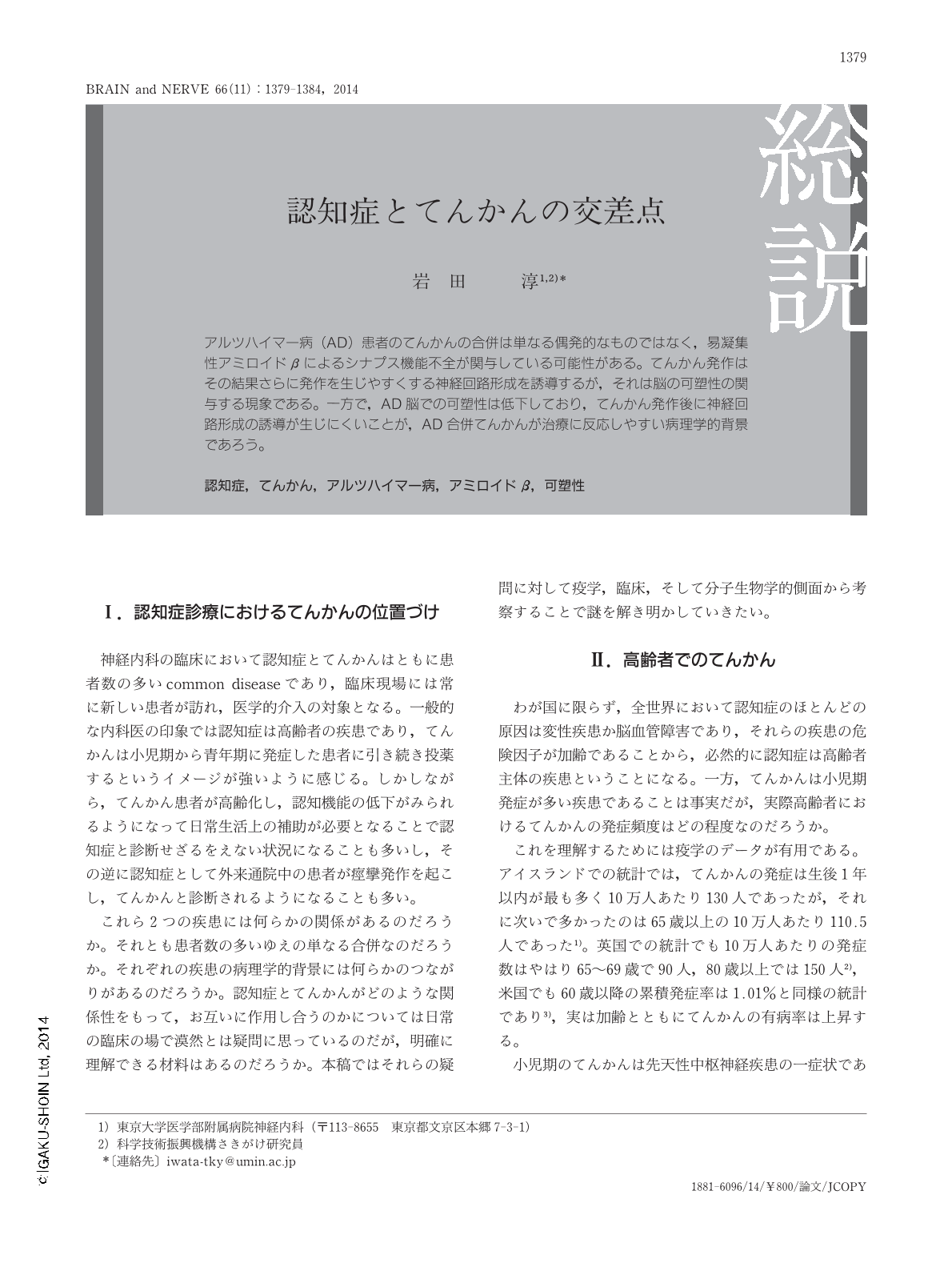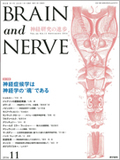Japanese
English
- 有料閲覧
- Abstract 文献概要
- 1ページ目 Look Inside
- 参考文献 Reference
アルツハイマー病(AD)患者のてんかんの合併は単なる偶発的なものではなく,易凝集性アミロイドβによるシナプス機能不全が関与している可能性がある。てんかん発作はその結果さらに発作を生じやすくする神経回路形成を誘導するが,それは脳の可塑性の関与する現象である。一方で,AD脳での可塑性は低下しており,てんかん発作後に神経回路形成の誘導が生じにくいことが,AD合併てんかんが治療に反応しやすい病理学的背景であろう。
Abstract
Epilepsy in patients with Alzheimer's disease (AD) is not a mere complication of another common disease, but a result of synaptic dysfunction due to accumulation of toxic amyloid β (Aβ). An epileptic attack triggers formation of a new neuronal circuit to lower the threshold of the next attack, which is a result of inherent neuronal plasticity. In patients with AD, this plasticity is impaired such that a "seizures beget seizures" situation does not occur. Thus, patients with epilepsy in AD often respond well to medication.

Copyright © 2014, Igaku-Shoin Ltd. All rights reserved.


